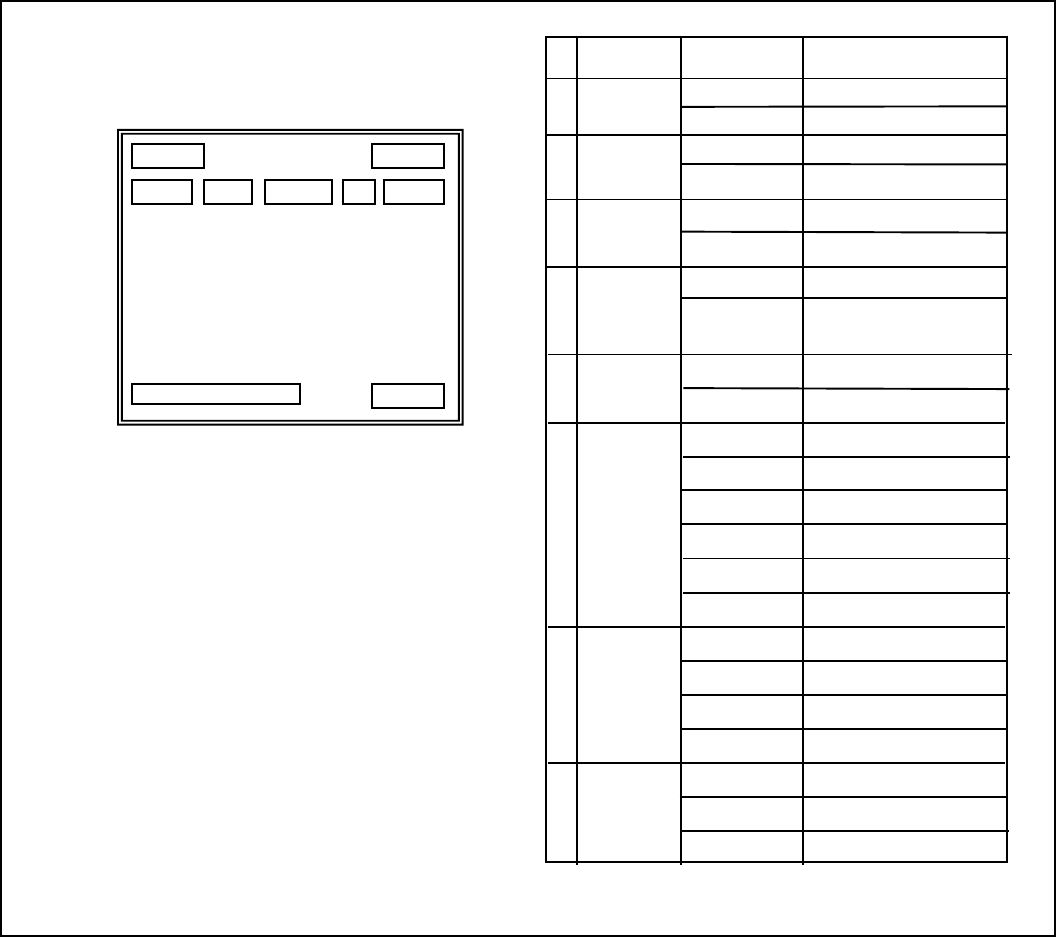
-10-
5. On Screen Display
<Fig5-1. Operating OSD display position>
5.1 How to display Operating OSD
a. Pressing the MENU key softly confirm current Operating OSD.
It is disappeared about five seconds later if there are no other key actions.
b. When it zoom in or out pressing TELE(up) or WIDE(down) key,
whole Operating OSD is displayed and then disappeared.
Press NEAR(+) , FAR(-) key, only upper part of Operating OSD
( for displaying camera mode ) is displayed and then disappeared.
(It is for checking current whole camera mode and zoom position )
c. Even though Operating OSD is disappeared,
it keep displaying ID in lower part of screen.
In order to do not display ID, one method is to change EEPROM data
of Camera, the other is to use external communication through RS-232C.
d. Using RS-232C communication, change display position of ID;
Bottom Right -> Top Left -> Top Right -> Non display.
* If display Operating OSD is not needed by special purpose
like using external text overlay board, it can be OFF modeat all times
through external communication control as RS 232C.
<Table5-1. Operating OSD description>
① ②
③,④
⑥
⑦
⑧ ⑧
⑧
⑤
⑥
①
②
④
NTSC:1/60
③
x35
⑦
⑧
Dx90
>> TELE
<< WIDE
⑤
AWB Auto WB mode
TITLE DISPLAY set as TITLE
OSD Format
DESCRIPTION
FUNCTION
Focus Mode
Non display
MF
Auto Mode
Manual / OneshotMode
Back Light
Backlight OFF
Backlight ON
Non display
Non display
BL
Flickerless
FlickerlessOFF
FlickerlessON
Non display
FL
WB MODE
Auto Tracking WB mode
Indoor Preset (3200°K)
Outdoor Preset (5400°K)
Manual WB mode
Shutter Speed
1 / 125
.
.
1 / 5 0, 0 0 0
9 variable steps
Non display
IN
OUT
MWB
Night Mode
NightshotOFF
Non display
NightshotONIR
One Push modeAWC
Optical Zoom
Digital Zoom
zoom IN
zoom OUT
ZOOM
DISPLAY
CAMERA
ID/TITLE
Non display
ID : 002
In case that ID is 0
In case that ID is 1 ~ 255


















